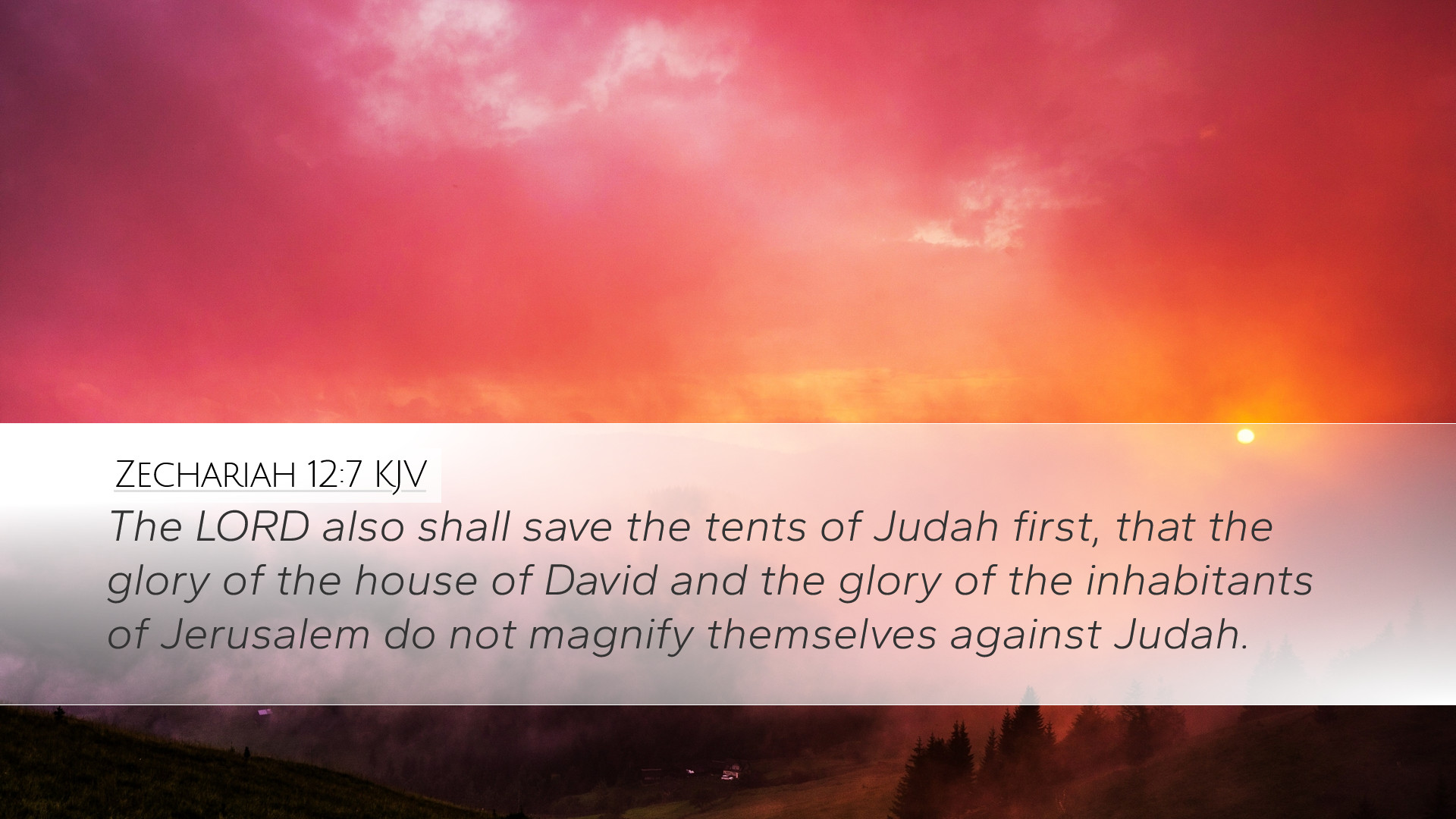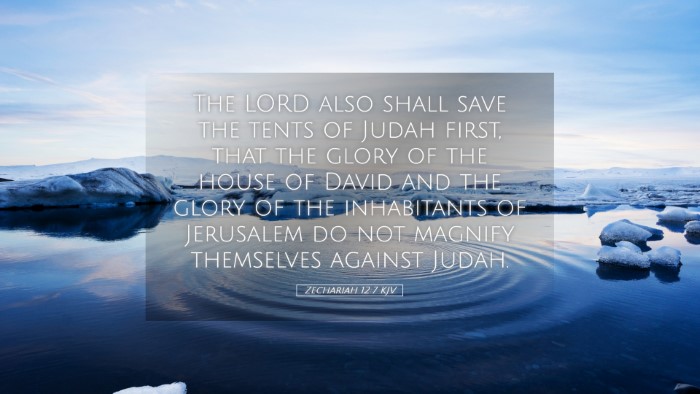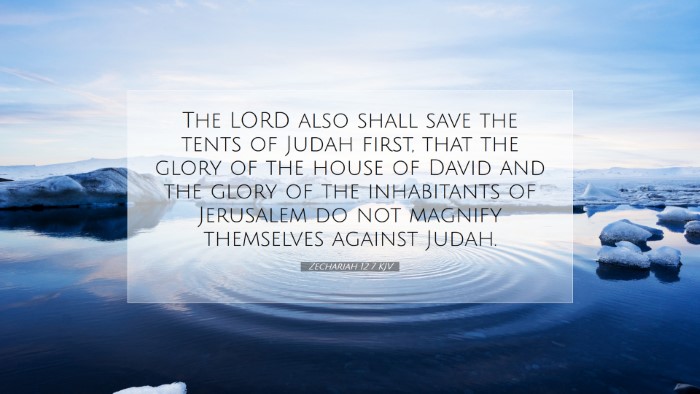Old Testament
Genesis Exodus Leviticus Numbers Deuteronomy Joshua Judges Ruth 1 Samuel 2 Samuel 1 Kings 2 Kings 1 Chronicles 2 Chronicles Ezra Nehemiah Esther Job Psalms Proverbs Ecclesiastes Song of Solomon Isaiah Jeremiah Lamentations Ezekiel Daniel Hosea Joel Amos Obadiah Jonah Micah Nahum Habakkuk Zephaniah Haggai Zechariah MalachiZechariah 12:7
Zechariah 12:7 KJV
The LORD also shall save the tents of Judah first, that the glory of the house of David and the glory of the inhabitants of Jerusalem do not magnify themselves against Judah.
Zechariah 12:7 Bible Commentary
Commentary on Zechariah 12:7
Zechariah 12:7: "The Lord also shall save the tents of Judah first, that the glory of the house of David and the glory of the inhabitants of Jerusalem do not magnify themselves against Judah."
Introduction
This verse forms part of a prophetic declaration concerning the restoration and security of Jerusalem and Judah. The emphasis is on divine mercy and sovereignty, revealing the importance of order in God's redemptive plan. In this commentary, we will explore insights from public domain sources to deepen our understanding of this text.
Theological Insights
-
Divine Salvation: The phrase "The Lord also shall save" indicates God's active role in the salvation of His people. This reminds us that salvation emanates from God's grace, a central tenet in the theology of both the Old and New Testaments. As noted by Matthew Henry, God’s interventions are often systematic and purposeful, guided by His unchanging covenantal promises.
-
Order of Salvation: The saving of "the tents of Judah first" alludes to the prioritization of Judah within the broader context of God's redemptive work. Albert Barnes emphasizes that this indicates God’s preference for a certain order in salvation history, which aligns with the broader narrative of Scripture that often highlights Judah’s significance as the lineage of David and ultimately, Christ.
-
Humility Before Exaltation: The warning against the glory of the house of David and the inhabitants of Jerusalem magnifying themselves against Judah reflects the principle of humility. Adam Clarke elaborates on how human pride can lead to division and conflict, whereas God’s agenda promotes unity among His people, reminding us that true glory is found in serving others.
Historical Context
The passage is set against the backdrop of post-exilic Israel, where the rebuilding of the temple and the restoration of national identity were essential. Scholars suggest that Zechariah's prophecies were given during a time of uncertainty, where factions could easily arise among the remnant of Israel. Understanding this context is crucial in appreciating the profound nature of divine intervention and unity in the Jewish narrative.
Key Themes in the Verse
-
1. Preeminence of Judah
The "tents of Judah" symbolize both the physical and spiritual aspect of the tribe that plays a significant role within the Restoration. This prioritization serves to reinforce God's promise of protection and exaltation for those deemed faithful.
-
2. Divine Favor
God’s choice to save Judah first indicates His ongoing covenant relationship with His chosen people. This can be seen as a reminder to all believers of their unique identity and purpose in the grand narrative of salvation.
-
3. Interdependence of the Tribes
The interplay between Jerusalem and Judah raises discussions about the unity and roles of different factions within the Church and community of believers. The notion that no faction is superior leads to a call for humility and collective identity in God’s service.
Practical Applications
For pastors, theologians, and students of the Word, Zechariah 12:7 offers several critical applications:
- Unity in Diversity: The acknowledgment of different roles within the body of Christ prompts leaders to foster unity rather than division. Emphasizing collaboration among various congregations and ministries echoes God's salvation plan for Judah and Jerusalem.
- Humility in Leadership: As church leaders engage in service, they must cultivate an attitude of humility, recognizing that they are instruments of God’s glory rather than the sources of it.
- Faithfulness and Obedience: The passage serves as a reminder for contemporary believers to remain steadfast in their faith, trusting in God’s timing and sovereignty rather than seeking self-exaltation.
Conclusion
In summary, Zechariah 12:7 reflects profound truths about God’s salvific work, the prioritization of His chosen people, and the necessity of unity and humility within the Church. Drawing on insights from traditional commentaries allows for a collective understanding of these themes, encouraging a deeper relationship with Scripture and prompting faithful application in our contexts today. As we reflect on this verse, let us remember the importance of salvation's order and our responsibility in living out God's redemptive plan.


